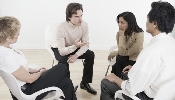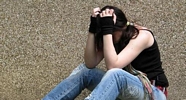|
|
 Acne (1,500) Acne (1,500)
 Addictions (1,500) Addictions (1,500)
 Advice (1,500) Advice (1,500)
 Allergies (1,092) Allergies (1,092)
 Alternative Medicine (1,500) Alternative Medicine (1,500)
 Anti Aging (1,500) Anti Aging (1,500)
 Breakup (1,500) Breakup (1,500)
 Cancer (1,499) Cancer (1,499)
 Dental Care (1,500) Dental Care (1,500)
 Disabilities (1,500) Disabilities (1,500)
 Divorce (1,500) Divorce (1,500)
 Elderly Care (1,498) Elderly Care (1,498)
 Goal Setting (1,500) Goal Setting (1,500)
 Hair Loss (1,500) Hair Loss (1,500)
 Health and Safety (1,497) Health and Safety (1,497)
 Hearing (1,500) Hearing (1,500)
 Law of Attraction (1,499) Law of Attraction (1,499)
 Marriage (1,500) Marriage (1,500)
 Medicine (1,497) Medicine (1,497)
 Meditation (1,499) Meditation (1,499)
 Men's Health (1,500) Men's Health (1,500)
 Mental Health (1,500) Mental Health (1,500)
 Motivational (1,500) Motivational (1,500)
 Nutrition (1,495) Nutrition (1,495)
 Personal Injury (1,499) Personal Injury (1,499)
 Plastic Surgeries (1,500) Plastic Surgeries (1,500)
 Pregnancy (1,496) Pregnancy (1,496)
 Psychology (1,500) Psychology (1,500)
 Public Speaking (1,500) Public Speaking (1,500)
 Quit Smoking (1,500) Quit Smoking (1,500)
 Religion (1,499) Religion (1,499)
 Self Help (1,500) Self Help (1,500)
 Skin Care (1,500) Skin Care (1,500)
 Sleep (1,500) Sleep (1,500)
 Stress Management (1,500) Stress Management (1,500)
 Teenagers (1,492) Teenagers (1,492)
 Time Management (1,500) Time Management (1,500)
 Weddings (1,500) Weddings (1,500)
 Wellness (1,500) Wellness (1,500)
 Women's Health (1,500) Women's Health (1,500)
 Women's Issues (1,500) Women's Issues (1,500)
|
Even when your baby is only two months old, you should keep her gums healthy and clean. Gently wipe her gums with a wet, clean, soft cloth every day. The most important thing to remember is never to put your baby to bed with a bottle. In addition, never prop up the bottle at any time.
Any kind of drink except water can cause a baby's teeth to decay, even breast milk and infant formula. Other liquids that cause tooth decay are powdered fruit drinks, soda and juice. Any drink that contains sugar can cause tooth decay when your baby gets older. A two-month-old baby should drink only breast milk, formula or water.
Here are some tips to follow to protect your baby's teeth:
• Always hold your baby during feedings. Do not prop up the bottle or leave a bottle in your baby's bed.
• If your baby needs a pacifier at bedtime, make sure it is clean and dry.
• Do not dip the pacifier in honey or sweet liquids. Your baby might like the sweet taste, but these liquids will cause tooth decay when her teeth come in. Germs in honey can also make a baby sick.
• Help prevent the spread of germs to your baby. You and your family should have regular dental checkups to help keep your own teeth and gums healthy. Clean the nipples of your baby's pacifiers and bottles by washing with soap and rinsing carefully and thoroughly with clean water. Do not lick your baby's pacifier or bottle nipples to "clean" them.
How To Clean Your Baby's Teeth
At 10 months of age, babies are too young to clean their own teeth. But you can start now to make teeth cleaning a lifelong daily habit. Your baby learns most from watching you. Set a good example by brushing your own teeth after every meal. Let your baby see you doing it. Then clean your baby's teeth by using a wet, clean, soft washcloth to remove germs. Do this after every meal. Save toothpaste until your baby is older.
Make teeth cleaning fun. Make a puppet from an old, clean white sock. Draw eyes and mouth on the bottom near the toe. Pull the sock over your hand. Pretend to clean the puppet's teeth. Let your baby try. Alternatively, use a stuffed animal.
Sing a song while cleaning. Make up your own words. Or sing these words to the tune of "Here We Go Round the Mulberry Bush." This is the way we clean our teeth, clean our teeth, clean our teeth. This is the way we clean our teeth so early in the morning. (This is the way we clean our teeth before we go to bed.)
Use teeth cleaning for learning. Point to your teeth and say, "Teeth." Ask, "Where are your teeth?" Talk about cleaning. Use words like brush, clean, tongue, top, bottom, back, front. Your baby will need to know these words when she starts cleaning her own teeth.
Make teeth cleaning a pleasant experience. That way your baby will want to try it on her own.
White spots on your baby's teeth could be a sign of bottle tooth decay . If you see white spots, call your dentist.
|
|
|



